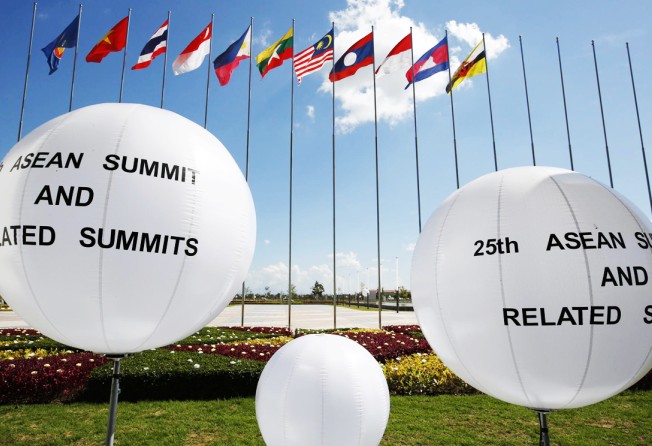China set to woo Asean with US$40 billion infrastructure fund
Premier Li Keqiang will try to boost Beijing's influence with promises of infrastructure cash at a regional summit in Myanmar, say analysts

China is expected to try to boost its geopolitical influence in Southeast Asia to offset the power of the United States by promoting its new regional infrastructure fund as Premier Li Keqiang starts his state visit to Myanmar today, analysts said.
Li, along with other state leaders, including US President Barack Obama, will gather in Myanmar's capital, Naypyidaw, for a two-day Association of Southeast Asian Nations summit.
Li will also pay a formal visit to the country.
China will likely flesh out its "21st Century Maritime Silk Road" proposal, which was put forward by President Xi Jinping . The initiative is aimed at increasing China's ties with the region.
"Maritime cooperation might get a push from the meeting this week given it fits well into the maritime Silk Road campaign," said Xu Lipin, a Southeast Asian affairs professor at the Chinese Academy of Social Sciences.
China had set up a 3 billion yuan (HK$3.78 billion) fund in 2011 as part of the Silk Road initiative, but that fund has met with reservations from Asean members, as Southeast Asian nations fear China is too assertive in making territorial claims in the disputed South China Sea.
But analysts said China would continue to push forward its agenda at the Asean summit, especially after Xi said China planned to launch a US$40 billion fund for infrastructure investment and financing and industrial and financial cooperation in the region.
Xi made the announcement about the fund on Saturday at a meeting in Beijing with leaders from Bangladesh, Cambodia, Laos, Mongolia, Myanmar, Pakistan and Tajikistan.
Shi Yinhong , an international relations professor at Renmin University of China, said Beijing believed the initiatives "will help China convince regional players that China is there to help, thus weakening the alliance between the US and the region".
Beijing has criticised several Asean member states, especially the Philippines and Vietnam, for allegedly siding with the United States to exert pressure on China over territorial claims in the South China Sea, of which China claims a large part. Washington and Manila signed a 10-year defence agreement in April, ensuring a continued US presence in the region.
A series of deadly anti-Chinese riots in Vietnam in May after a Chinese oil rig was deployed in disputed waters also severely strained ties between Hanoi and Beijing.
Shi said the relationship between China and Vietnam had improved recently following the exchanges of senior officials on both sides.
But he added that "countries like the Philippines, the US and Australia will likely stand very firm against China's claims".
Dan Blumenthal, director of Asian studies and a resident fellow at the American Enterprise Institute think tank in Washington, said the increasingly competitive dynamics of Sino-US relations would cast a shadow over the Asean summit.
"China will try to show that it is Asia's leader while trying to reassure Asean members that its intentions are benign. The US will try to demonstrate its continued leadership, which most of the summit participants will, at least quietly, want," he said.
Fan Hongwei, a professor of Southeast Asian studies at Xiamen University, said Li would also offer aid to Myanmar, but at the same time ask for better protection of Chinese investments and businesses.
Myanmar's reformist government has shown signs of decreasing dependence on China since taking power in 2011.
China is a major investor in Myanmar, but also faces criticism that it is exploiting the country's natural resources.
A US$3.6 billion project led by China to build a dam at Myitsone has been suspended.
"Beijing is concerned whether Myanmar's reliance on China will decrease, given that Myanmar's reformist government has courted the US. But there are signs that the US thinks the progress of democratisation is too slow to reach a truly democratic election next year," Fan said.
"It remains to be seen whether the US will lift more sanctions against Myanmar."